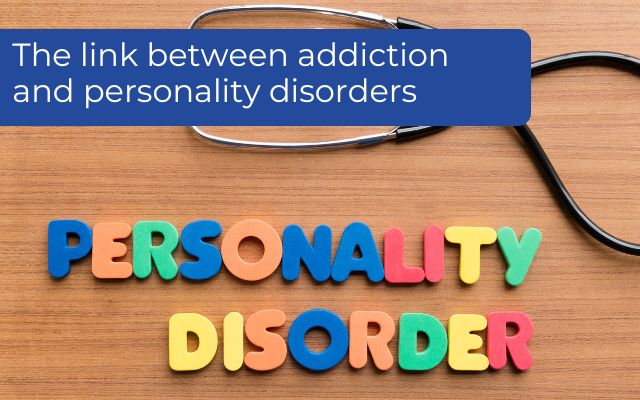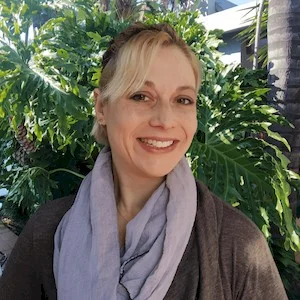Personality disorders: There is a lot of baggage, and many myths, that come with this phrase. But one irrefutable truth is that there is a strong link between addiction and personality disorders. Read on for an in-depth look at the science behind this link.
Having a personality disorder is often confusing and scary for both the patient as well as his or her family or loved ones.
Personality disorders are difficult to treat, especially when they occur alongside a substance use problem. But addiction and personality disorders often go hand in hand and both issues need to be addressed simultaneously in order for an addicted person to have the best chances of staying sober in the long term.
The link between mental illness and addiction goes both ways. About 50% of people with a severe mental illness are also affected by a substance problem. Moreover, roughly 37% of alcohol abusers and 53% of drug abusers have at least one other serious mental illness.
Although statistics for South Africa are not available, in the United States it is estimated that 69% of all the nation’s alcohol and 84% of all the cocaine used in that country is consumed by people who have been diagnosed with another mental illness at some point in their lifetime.
When another mental illness occurs alongside addiction it is termed dual diagnosis.
What are personality disorders?
A personality disorder is a mental disorder “in which you have a rigid and unhealthy pattern of thinking, functioning and behaving”. This causes problems when it comes to reacting appropriately to situations and within relationships. These difficulties can lead to significant problems in social situations as well as with work or school.
An affected person usually develops a personality disorder, or disorders, during their teenage years or in early adulthood. It is often difficult to identify and accept that you have a personality disorder because your way of thinking seems normal and natural to you.
It is estimated that about 6% of the global population has at least one personality disorder.
The most common personality disorder is obsessive-compulsive personality disorder, followed by narcissistic personality disorder and borderline personality disorder.
These disorders are grouped into three types or clusters.
Cluster A personality disorders are characterised by strange, peculiar and eccentric ways of thinking and behaving. Cluster A includes:
- Paranoid personality disorder
- Schizoid personality disorder
- Schizotypal personality disorder
Read: What’s the link between addiction and Cluster A personality disorders?
Cluster B personality disorders are marked by dramatic, exaggerated, excessively emotional or unpredictable thinking and behaviour. Cluster B includes:
- Antisocial personality disorder
- Borderline personality disorder
- Histrionic personality disorder
- Narcissistic personality disorder
Read: What’s the link between addiction and Cluster B personality disorders?
Cluster C personality disorders are characterised by heightened anxiety as well as fearful thoughts and actions. Cluster C includes:
- Avoidant personality disorder
- Dependent personality disorder
- Obsessive-compulsive personality disorder
Read: What’s the link between addiction and Cluster C personality disorders?











What’s the link between addiction and personality disorders?
Research shows that 23% of people with any type of personality disorder have an addiction. Moreover, depending on the study, between 34 and 70% of people treated for addiction also have a personality disorder.
Using drugs and alcohol to deal with the pain or problems related to having a personality disorder is common. Drugs or alcohol do not cause personality disorders but people with a personality disorder have been found to be more likely to abuse drugs and alcohol – and, as a result, are more likely to eventually develop an addiction.
Borderline personality disorder and antisocial personality disorder are the two most commonly diagnosed personality disorders in people with substance abuse problems.
The more severe the addiction, the more likely it is that there is a co-occurring personality disorder.
According to a study published in 2012, people with a dual diagnosis of substance use disorder and a personality disorder tend to:
- Be younger when they enter inpatient treatment
- Have used more illicit drugs
- Be more likely to also have anxiety disorders and depressive symptoms
- Have less engagement in work or school
This research underscores the need for the diagnosis and treatment of co-occurring personality disorders in people with substance problems in order to prevent tragic and damaging outcomes.
Treating addiction and personality disorders
Having a personality disorder is related to lower rates of treatment success for addiction. But the chances of achieving long-term sobriety increase if both the personality disorder and the addiction are treated simultaneously.
Treatment for personality disorders is notoriously difficult (but by no means impossible) as there are no specific drug-based interventions for these conditions. However, the related symptoms experienced as a result of a personality disorder are often treated with medication, for example depression or anxiety.
Therapeutic interventions that have been successful in the treatment of personality disorders include cognitive behavioural therapy and dialectical behaviour therapy (DBT). DBT was specifically developed for the treatment of borderline personality disorder.
In order for personality disorders to be correctly diagnosed and treated in addiction rehabilitation centres, there should always be a psychiatrist (who is experienced in dual diagnosis) available to assess and treat clients. Experienced psychologists should also be a part of the treatment team so that clients are appropriately treated for both their addiction and any co-occurring personality disorders to give them the best chance of a successful recovery.
Conclusion
We’ve explained the link between having a personality disorder and developing a substance abuse problem – and why this link exists. Finally, we’ve highlighted why it is critically important to treat addiction and personality disorders simultaneously so that clients have a better chance of getting clean and sober in the long term.
Are you looking for addiction treatment that pays special attention to dual diagnosis? Contact us today.
Do you want to learn more about dual diagnosis? Read:
- Dual diagnosis / Addiction Bipolar disorder
- Dual diagnosis With Depression and Addiction
- Dual diagnosis With Anxiety and Addiction
- Dual diagnosis With ADHD and Addiction
- Dual diagnosis With PTSD and Addiction
Personality disorders often heighten addiction risk and complicate recovery, requiring tailored treatment plans and specialist support to improve outcomes. Changes team counsellors are here to help you.Personality Disorders Drive Addiction Risk and Recovery








